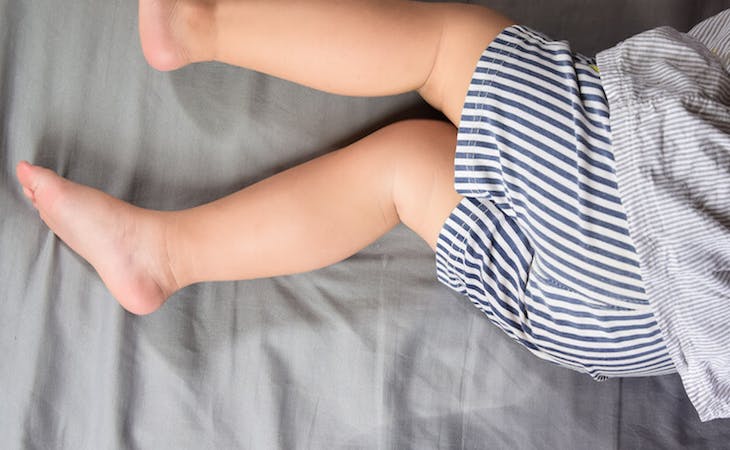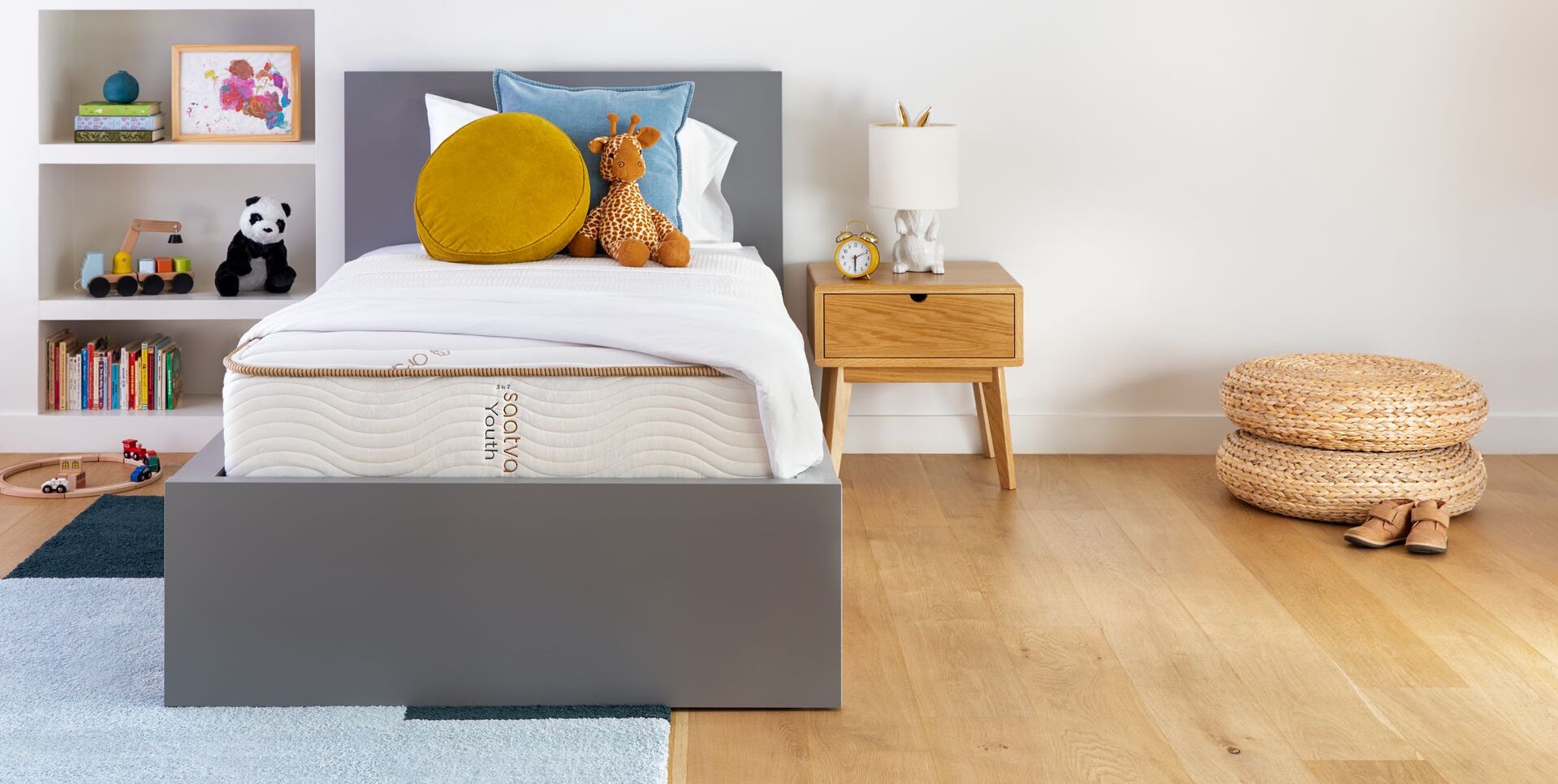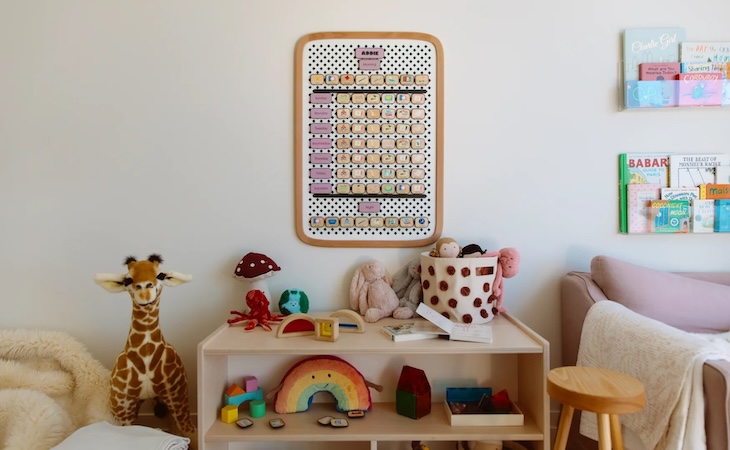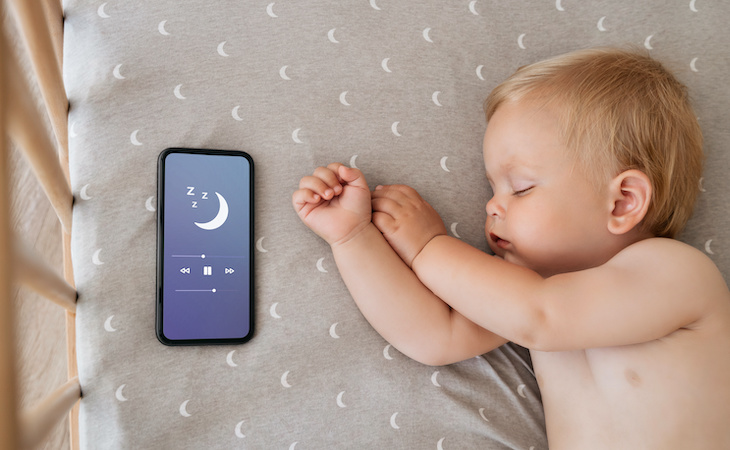If your child still wets the bed, they’re not alone. Approximately 15% of 5-year-olds have accidents at night. And while chances are your child will outgrow the habit eventually, you’d probably like to sleep through the night yourself and no longer have to wash soaked pajamas and bed sheets.
Luckily, there are some simple and inexpensive ways to address bed-wetting and eventually make it a thing of the past. Here’s what you need to know.
Why is my child wetting the bed?
There are several reasons why a child may wet the bed. One of the most common is something many of us adults may envy: Children are simply very deep sleepers, says Lynelle Schneeberg, PsyD, pediatric sleep psychologist and author of Become Your Child’s Sleep Coach: The Bedtime Doctor’s 5-Step Guide, Ages 3-10. These children doze so soundly that they aren’t aware of the need to get up to use the bathroom. They may also have small bladders and can’t make it through the night without relieving themselves.
However, some children may have an underlying medical problem. Sleep apnea is actually not uncommon at this age. If a child has this condition, their breathing is disrupted during the night. “When they pause in breathing, their oxygen level drops and the body triggers them to take a breath, and that kind of stimulates the bladder,” Schneeberg explains. Enlarged tonsils or adenoids increase the risk of pediatric sleep apnea.
Other conditions linked with bed-wetting include constipation, urinary tract infections, diabetes, and neurological problems. Stress from things like moving, starting a new school, or the arrival of a new baby sister or brother may also be a factor.
How to help your child stop wetting the bed
Aside from addressing any medical conditions, one of the best ways to help your child stop wetting the bed is to use a bed-wetting alarm, Schneeberg says. These devices have a moisture sensor that you put in your child’s underwear, where it can detect the first few drops of urine. If your child begins to pee at night, the alarm will go off.
“It’s 100% on the parent to hear the alarm,” Schneeberg says. “Your child is too deep of a sleeper and will not wake up.” She recommends using a baby monitor so you can hear the alarm right away, go into your child’s room, and tell them to get up and walk to the bathroom. Over time, their brain and bladder will connect so that your child can wake themselves up or sleep through the night without urinating.
It may also help to limit fluids later in the day and to encourage your child to go to the bathroom regularly (Schneeberg recommends about every two hours) during the day as well as right before bed. However, do not wake your child up to use the bathroom when you go to bed. That won’t help and may only make them sleepy during the day.
Although some doctors recommend medications such as Desmopressin (DDAVP), Schneeberg says these don’t work as well as bed-wetting alarms do. These drugs can also cause side effects such as constipation, headaches, and nervousness, and children may revert back to wetting the bed when they stop taking the medication.
Whatever you do, be sure to never shame your child, Schneeberg advises. “It’s not their fault; they are just too deep of a sleeper,” she says. While it’s fine if they wish to help clean up any accidents, it’s best not to force them to do so, she adds. Instead, encourage your child to talk if they seem upset, and then listen and give them support. Also acknowledge any progress you see them making.
Related: 5 ways to keep anxiety from ruining your child’s sleep
How to make cleaning up accidents easier
As you help your child with their bed-wetting, accidents will happen until they are fully trained. And while nobody looks forward to changing wet sheets in the middle of the night, you can make clean-ups easier. We took this into consideration when we designed our new Youth Mattress, which has a water-resistant surface treatment and a waterproof barrier under the mattress cover.
First, Schneeberg recommends saddle-style pads. These wrap under each side of the bed and hold six cups of liquid. If an accident happens, you just pull them off and toss them in the washer. You can even put two pads on before bed so you can pull off the soaked one and not need to put a new one on until morning.
Also keep a flashlight near your child’s bed or use a nightlight so both of you can see without turning on harsh overhead lights. Then have clean pajamas and underwear or a pull-up nearby for your child to change into. Although some experts suggest using pull-ups and even putting a sanitary pad inside for added absorption, most advise avoiding the long-term use of pull-ups. Otherwise, your child may become reliant on them.
If these tips don’t work and your child is older than 7, consider talking to their pediatrician to rule out any medical conditions. Usually, though, “nature will take its course” and the bed-wetting will stop as they age, Schneeberg says.





